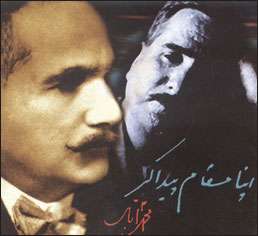Aristotle: In Kalam of Allama Iqbal
Aristotle was born in Stagira in Greece in 384 B.C. At the age of eighteen he went to Athens to study in Plato’s Academy where he remained for twenty years. Then he moved to Macedon where he became tutor to Alexander, who later became Alexander the Great. When Alexander succeeded to the throne, Aristotle returned to Athens where he taught at the Lyceum. In 323 BC at Alexander’s death, Aristotle left Athens where there was an upsurge of anti-Macedonian feeling. He retired to Chalds where he died in 322 BC.
Aristotle was a prominent philosopher and many of his writings have survived. He wrote several books on Logic. For Aristotle, Logic was preparation for scientific knowledge, not knowledge itself. He introduced the philosophic method of demonstration by the syllogism and by dialectic, or reasoning from the opinion of others. He maintained that all human knowledge originates in sensible experiences, out of which the soul perceives the universal.
He distinguished between the substance of a thing, and its accidental properties. He wrote some treatises on Ethics. He held that happiness is the goal of life. He held that pleasure, fame, and wealth lead to happiness, but the highest form of happiness is achieved through the contemplation of philosophic truth. He wrote on Politics, and held that the good of the individual was identified with the good of the city state. He discussed different types of government and expressed his preference for monarchy. • He wrote on Rhetoric and treated methods of persuasion. He wrote on Poetics wherein he discussed the art of literary criticism. Aristotle mastered every field of learning known to the Greeks. He was called by Dante “the master of those who know”.
It appears from ‘‘Stray Reflections: A Note Book of Allama Iqbal that Iqbal had a great regard for Aristotle. He said:
“I have the greatest respect for Aristotle, not only because I (living in the twentieth century) know him much better than the old
Generations of my community, but also because of his vast influence on the thought of my people”.
Iqbal was, however of the view that while the philosophy of Aristotle was good in the transitional phases of man’s march towards Reality, it did not reveal Reality itself. In Zabur-i-Ajam Iqbal has said:
“You should be acquainted with Aristotle for sometime;
For sometime you should be in the company of Bacon as well;
But you should step beyond their station;
For you must journey further to reach your destination”.














